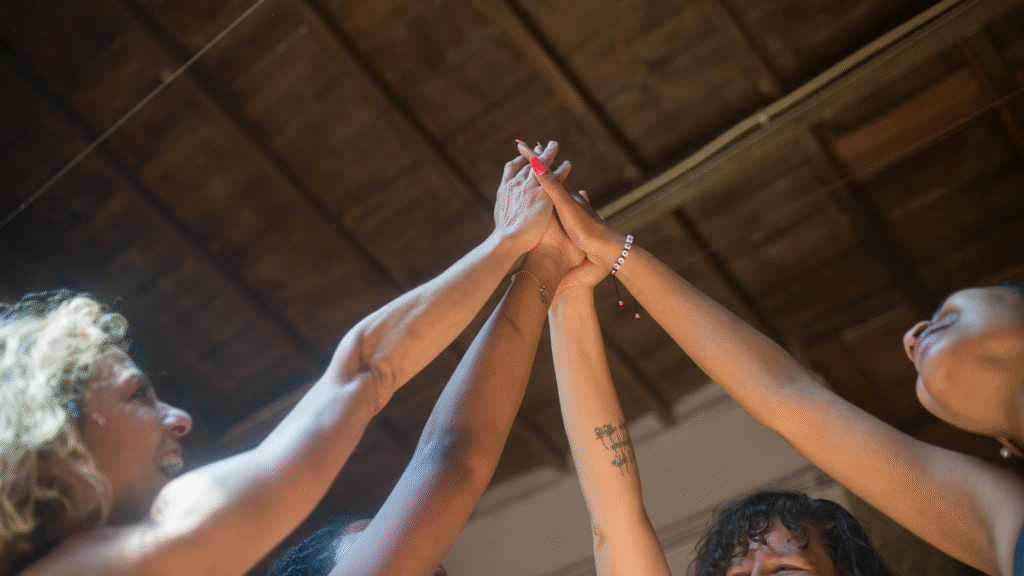Betrayal takes many forms. It shows up in the workplace when someone you mentored turns against you. It shows up in friendships when private conversations suddenly become public. It shows up in families when silence replaces the support you expected. Betrayal always hurts because it comes from people we trusted, people who held a place in our lives. But here’s what I’ve learned, both personally and professionally: betrayal is not the end of the story. For immigrant survivors of betrayal, the pain is often magnified by cultural stigma, family pressures, and immigration challenges that make healing even harder.
Betrayal forces clarity. It reveals who truly stands with us and who never did. It teaches us to set boundaries, to rebuild with sharper eyes and stronger resolve. And while the pain is real, so is the growth that comes from it. Every scar is proof not of weakness, but of survival.
Stories of Resilience: Clients Who Fought Back

In my work, I see betrayal in some of its most devastating forms:
- Women betrayed by husbands who promised love and instead delivered abuse.
- Survivors betrayed by families who turned their backs when help was needed.
- Immigrants betrayed by systems that claimed to protect them but looked the other way.
These are not small betrayals. They are life-altering. Yet, time and time again, I watch my clients turn that pain into power.
One woman I represented came to me after years of marriage to a U.S. citizen who promised her safety and love. Instead, he isolated her, threatened to have her deported, and used her immigration status as leverage to control her. When she found the courage to leave, her own in-laws told her she deserved what she got and that no one would help her. She felt completely abandoned. But through VAWA, she found her voice again. Filing that petition was not just a legal act. It was an act of defiance against betrayal. Today, she has her green card and is building a new life for herself and her children.
Another client was a young man trafficked into labor, promised honest work, but instead was forced into brutal conditions with no pay and constant threats. The people he trusted to bring him to the U.S. betrayed him in the worst way, treating him as disposable. He thought there was no way out, until we helped him apply for a T visa. For him, that approval was more than a document. It was proof that his story mattered, that justice was possible, and that betrayal could be answered with dignity.
VAWA and T Visas: Legal Lifelines for Survivors

These laws, VAWA and T visas, exist for precisely these moments. They are lifelines for people who have been betrayed in the most profound and dangerous ways. They offer a chance not just at safety, but at justice. They help survivors reclaim power that was stripped from them.
Choosing to fight back is never easy. It means facing fear, rejection, and sometimes standing alone. But I see daily that resilience is not about never being hurt. It is about refusing to let the hurt define you. It is about choosing optimism when bitterness would be easier. It is about believing that a new chapter can still be written, even if the last one was filled with pain.
When my clients decide to file their cases, to stand up to abusers, to push back against traffickers, they are reclaiming the power that betrayal tried to take from them. They are proving that strength is not measured by what breaks you, but by how you rise after the breaking.
The Reality Behind Legal Protections
Recent data highlight how critical legal protections like VAWA and T visas are, and how desperately they are needed. In 2023 alone, nearly 29,000 VAWA petitions were filed, yet only about 7,000 were approved, showing both the demand and the high standards applicants must meet.
USCIS data also reveal that VAWA self-petitioners may wait more than two years, with an average of 28 months for approval and employment authorization. This delay underscores why timely legal aid and support matter so much. Without intervention, survivors remain vulnerable longer than necessary.
Additionally, studies show that as many as 65 percent of immigrant survivors report some form of immigration-related abuse. For immigrant women married to U.S. citizens or permanent residents, the rate of abuse reaches nearly 51 percent. These statistics are a reminder that betrayal is not rare. It is systemic. And policies like VAWA and T visas are more than legal tools. They are essential to delivering justice and rebuilding lives.
Rising Together: A Closing Message

Betrayal leaves scars, yes. But those scars tell a story not of weakness, but of resilience. Not of despair, but of hope. And sometimes, the very people who thought they were destroying us end up giving us the fire we needed to build something stronger than they ever imagined.
If betrayal has ever dimmed your light, know that you are not alone and your story does not end in harm. At Qazi Law, we stand with survivors, guiding you toward safety, justice, and a future rebuilt on your own terms. Call us at 630-504-0648 or schedule a confidential consultation with Attorney Farrah.
Sign Up for Our Newsletter: Receive weekly immigration news and free toolkits.
Follow us on social media to stay informed:
Facebook: Qazi Law Offices
Instagram: Abogada Farrah Qazi
LinkedIn: Qazi Law Offices
You are not defined by betrayal. Your strength, courage, and resilience will shape what comes next. Your new beginning starts now.

